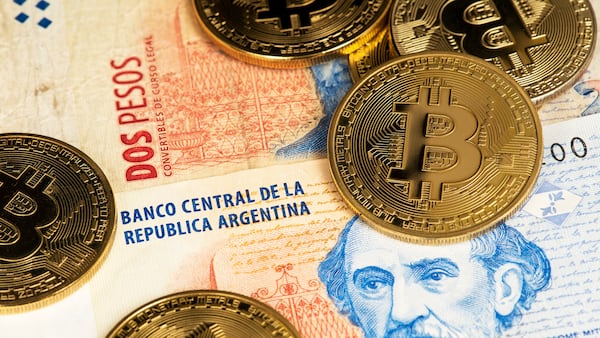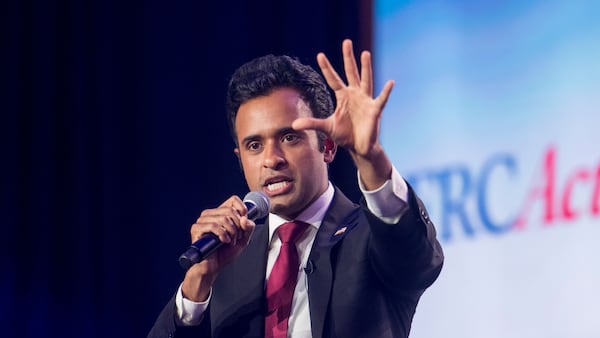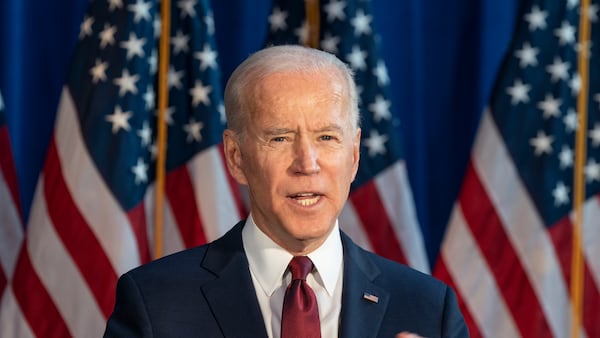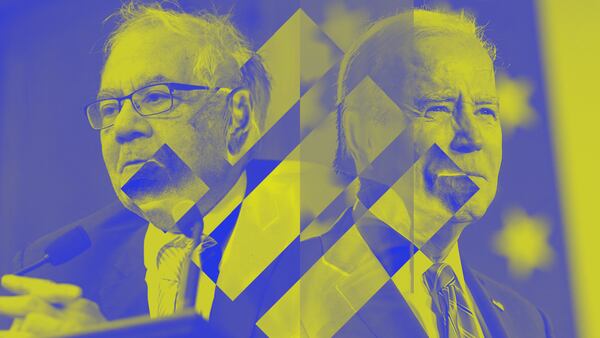- Elections around the world will affect the future of crypto in 2024.
- Political upheaval could rapidly change the industry’s outlook in the US, the EU, Latin America, and Asia.
- Despite this, our ombudsman declines to make any predictions in the new year.
Robert Holloway is a columnist and an award-winning ombudsman at DL News. Views expressed are his own.
For reasons best known to psychologists, people are attracted to annual predictions. Like their seasonal cousins, New Year’s resolutions, they are essentially useless.
Bitcoin’s two-year fall and rise should warn us that forecasting its course in 2024 is at best a dubious proposition.
This time last year, the only truly safe bet was that the price of the most widely traded crypto asset would either rise or fall. Or perhaps remain flat.
Not that after plunging in 2022 from just over $ 47,000 to $16,500, it would almost recover by Christmas 2023.
This column will not make forecasts. Instead, it will note events in the calendar that might have an impact on the crypto industry.
Almost 50 countries will hold national elections in 2024. Voting will take place in eight of the 10 most populous nations and in seven of the G20 nations.
The 27-member European Union will renew its supranational parliament for five years on June 6.
While crypto is unlikely to figure much, if at all, in the programmes of any political parties, results will decide whether more or less crypto-friendly candidates take office.
All eyes on the US
Attention is already focused on the US presidential election on November 5.
Among the declared candidates, President Joe Biden is the least favourably inclined towards the crypto industry, having criticised “tax loopholes that help wealthy crypto investors.”
His 2024 budget proposals included a tax on digital asset miners equivalent to 30% of their energy costs. The proposal failed to get congressional approval.
Former President Donald Trump is nothing if not unpredictable. Four years ago, while in office, he tweeted that he was “not a fan of Bitcoin and other cryptocurrencies,” saying their value was “highly volatile and based on thin air.”
He also said unregulated crypto assets could be used to finance drug trading and other illegal activities.
Last year, however, he launched his own NFT, the Donald Trump Digital Card. Priced at 99 cents, all 45,000 were sold within 24 hours.
Two subsequent token issues were less successful. Various media reports put Trump’s crypto holdings at around $2.4 million.
Americans will also be electing 33 senators, a third of the total, and all 435 members of the House of Representatives.
If Biden’s Democratic Party gains control of the House, it will likely intensify moves to regulate crypto.
EU elections looms
If recent legislative elections in EU member states are a guide, nationalist or populist parties will greatly increase their share of the 705 seats in the EU Parliament.
The current assembly, elected in May 2019, is dominated by three centrist political blocs and an alliance of green parties, all of which to varying degrees favour strengthening the EU and its institutions.
The EU’s Markets in Crypto-Assets regulation, more commonly known as MiCA, came into force last June. It is now in the early stages of implementation.
The new parliament will begin sitting before the process is complete. Its assent will be required to pass new regulations.
While it is dangerous to generalise, Euro-sceptic and populist parties could be expected to take a more favourable view of the crypto industry than others.
Former British member of the EU parliament Nigel Farage once compared the philosophy behind Bitcoin to his successful campaign to take the United Kingdom out of the Union.
It was, he said in an interview with Bitcoin Magazine, “an economic insurgency that’s being driven and led by people who are worried about the sheer size and scale of big government.”
In the past two years Euro-sceptic parties have done well at the national level, most recently in The Netherlands where the Dutch Party for Freedom under Geert Wilders topped the polls in a general election on November 22.
The head of the radical right-wing Brothers of Italy, Giorgia Meloni, became prime minister after elections in 2022. Meloni also heads the European Conservatives and Reformists bloc in the EU parliament.
In Finland and Slovakia, right-wing populist parties entered coalition governments after strong electoral showings in 2023.
The French National Rally, the largest component of the nationalist bloc in the current EU parliament, is expected to strengthen its position in June elections, opinion polls say.
Latin America elections on the horizon
The first national election of interest to the crypto community takes place in El Salvador on February 4. Under President Nayib Bukele, in September 2021, the Central American country became the first to adopt Bitcoin as its legal currency.
Since then, he has kept pushing pro-crypto policies such as his Volcano Bonds, which are expected to drop in early 2024 and will fuel the creation of his ambitious Bitcoin City project, as well as creating a pathway to citizenship for crypto investors.
Bukele is popular, in particular because the level of violent crime has plunged since his government jailed thousands of gang members. In August, Reuters cited opinion polls suggesting that he would be re-elected with more than 68% of the vote.
His opponents accuse him, however, of an illegal power grab since the constitution limits a president to a single five-year term. The supreme court nevertheless ruled in his favour and the national Congress voted to allow him to stand down on December 1 to prepare his re-election campaign.
The economy of El Salvador ranks only 15th in Latin America, with GDP estimated at $35 billion in the IMF’s Economic Outlook for 2023.
Still, its crypto policy has found at least one imitator in the region. As DL News reported in December, Argentina has authorised contracts agreed in Bitcoin.
Argentina’s GDP exceeds $620 billion — third largest in Latin America — but inflation is running at more than 160% a year.
Elected on November 19, President Javier Milei has announced wide-ranging economic reforms that might include cryptocurrencies.
Mexico, the largest Latin American economy after Brazil, is already a crypto-friendly country where more than three million people are thought to hold crypto accounts.
While the environment is fairly permissive, financial transactions in virtual assets are not yet allowed. Changes are possible after presidential and congressional elections on June 2.
Asian elections beckon
Also of interest is South Korea, where legislation to regulate cryptocurrency markets will come into effect in July.
The law was passed after the $60 billion collapse in 2022 of Terra, founded by South Korean national Do Kwon.
He was arrested in Montenegro in 2023, accused and subsequently sentenced for travelling with fake documents. Both South Korea and the US have sought his extradition.
While the law was designed chiefly to protect investors, the vice chairman of South Korea’s Financial Services Commission, Kim So-young, said recently that further regulation should strike a balance with the need to encourage innovation.
Any new legislation will be the responsibility of the parliament to be elected on February 14.
Elsewhere, Indonesia, which opened the world’s first state-backed crypto-currency bourse in July 2023, holds elections on February 14, while South Africa does so in May.
The two countries are among the most friendly environments for investment in cryptocurrencies, although their governments forbid their use as a means of payment.
Not just elections
Mid-April will see the fourth halving since Bitcoin was launched in 2009. Halvings occur about every four years, after 210,000 coins have been mined — that is, 1% of the total of 21 million decreed by the currency’s founder Satoshi Nakamoto.
On each occasion, the reward to miners is halved. In April, it will go from 6.25 to 3.125 coins. On the basis of past performance, the price is likely to rise.
Within six months of the second halving, on July 9, 2016, the price of Bitcoin rose by about 18%. The third halving, on May 11, 2020, led to a 24% increase. Readers are free to speculate what will happen this time.
I am prepared to hazard one guess about the coming year. Crypto will add a new word or two to the English language in reaction to increased regulation and supervision of the industry.
Some people are no doubt already exploring ways to get around the provisions in MiCA. They will intensify their efforts as new regulations come into force in Europe and the US.
A crisp Spanish expression goes: Hecha la ley, hecha la trampa. Roughly translated: Once there’s a law, there’s a loophole.
Like sex, illegal activities are a rich source of slang. I look forward to writing more columns about crypto and language in the coming year.







